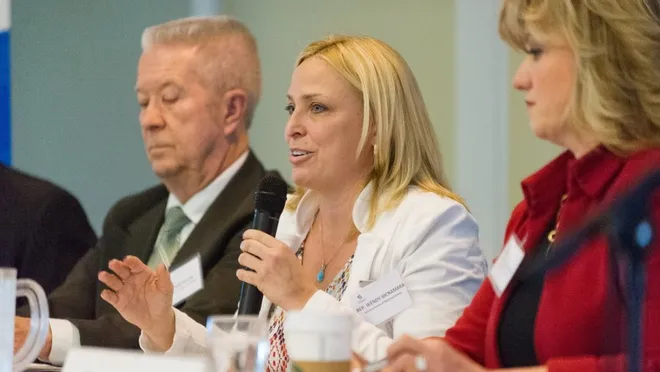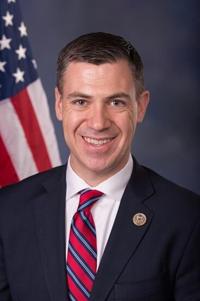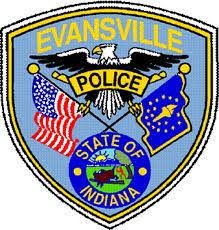“IS IT TRUE JUNE 26, 2023
City-County Observer Comment Policy. Be kind to people. No personal attacks or harassment will not be tolerated and shall be removed from our site.
We understand that sometimes people don’t always agree and discussions may become a little heated.  The use of offensive language, insults against commenters will not be tolerated and will be removed from our site.
Any comments posted in this column do not represent the views or opinions of the City-County Observer or our advertisers.
IS IT TRUE that the harsh reality of biased reporting and intentionally reporting falsehoods news has turned off nearly everyone?…with Facebook and other social media outlets making every human being a reporter without any truth filters, we are becoming an amazingly misinformed nation but some of us don’t seem to know it?
Over 640 Students Named to Spring 2023 Dean’s List
Over 640 Students Named to Spring 2023 Dean’s List
Posted: May 23, 2023
The University of Evansville named more than 640 students to the Dean’s List for the Spring 2023 semester. Congratulations to these Aces for their outstanding academic achievement!
Students are named to the Dean’s List every fall and spring semester. To merit the honor of being placed on the Dean’s List, a student must have carried a full academic load of 12 hours or more and have earned a grade point average of 3.5 or above.
The Following Students Achieved Dean’s List Honors:
William L. Ridgway College of Arts and SciencesÂ
Isaac Bates
Ivy Clark
Rachel Neupert
Jacob Overstreet
Noah Stabler
Madelyn Webb
Lillian Boring
Tessa Chanley
Baylee Minton
Elizabeth Ackerman
Evan Barr
Makayla Gomperts
Amanda Shields
Abigail Daniel
Abby Feit
Emily Langston
Ariel Thomasson
Abigail Wight
Lucas Greer
Nora Ruotolo
Destini Beckham
Willow Kruggel
Caroline Gorman
Michael Ikejiani
Cristina Alvarado
Alejandra Aguilar
Sarah Vreeland
Martha Wolf
Cecilia Barmes
Jeremiah Sagers
Nicole Tucker
Samuel Leatherwood
Benjamin Patterson
Jacob Bettag
Andrew Garvin
Savannah Cook
Charles Harad
Brian Woodard
Kylie Jesus
Shraya Rao
Kaitlyn Wilhite
Emma Williams
Maya Barry
Benjamin Bravard
Ashly Chalico
James Guest
Gabriel Smothers
Remington McDaniel
Brianna Alley
Brenna McLain
Niamh Steffens
Kelsey Berner
Ashley Kitch
Samantha Schmidt
Bradley Schulte
Alyssia Faulkner
Emma Ault
Jackson Caudill
Alexa Davis
Taylor Howe
Allison Enchelmayer
Rachel Taylor
Grace Hoening
Olivia Howlett
Kaitlyn Collins
Kayli Hoffman
Allison Statler
Madison Warner
Kelsey Breneman
Abigail Kellams
Hyeonjong Oh
Chloe Brzozowski
Elizabeth Dye
Evelyn Hipp
Sara Mathew
Andrew Norrington
Anna Robbins
Sara Wilkens
John Brown
Nicholas Buechlein
Audrey Chambers
John Erickson
Emily Palmisano
Nandini Mathavan
Reagan Nowaskie
Shauna Mihalyo
Kim Phan
Devyn Schaetzle
Elyse Talley
Lily Waddell
Charlie Watts
Olivia Frayer
Jordan Bradley
Wuendi Gaytan
Kira O’Neal
Elizabeth Recker
Samuel Tarter
Blake Froedge
Jordan McKinney
Hannah Addison
Austin Faulkner
Hannah Garrity
Sarah Andresen
Angelika Elderbrook
Katelyn Chambers
Riley Forinash
Kodie Myszka
Kathryn Tyler
Rebecca Conaway
Jonathan Finn
Garrett Hale
Christina Jesenski
Zoe Paraskevopoulos
Jeffrey Parkinson
Haley Curtis
Yumna Al-Hasni
Olivia Barclay
Mary Butler
Lucas Manner
Andrew Painter
Julia Ribblett
Zoe Sykes
Rachel Fisher
Hannah Halbrook
Rebecca Bailey
Logan Chanley
Hope Hartmann
Ashleigh Hoskins
Abbigail Lenk
Elias Gray
Forrest Wade
Gavriel Honnigford
Ian Leonhardt
Iryna Tsesiul
Austin Hernandez
Troy Schroeder
Donovan Schultz
Mason Taylor
Grace Burnell
Samantha Fowler
Delaney Rasche
Emily Schwartz
Caleb Sellers
Elizabeth McCook
Mitchell Matthews
Olivia Oswald
Jessica Bouche
Daniel Hackney
Jarett Osborne
N’deyah Wilson
John Sutter
Sydney Wilbur
Grant Kay
Luke Sergesketter
Olivia Doyle
Melisa Dubon
Tad Specht
Audrey Blanner
Jocelyn Solano Sanchez
Abigail Sorensen
Kent Biehle
Misha Bukkasagaram
Dalton Lampert
Olivia Wilson
Darrah Alcantara
Peighton Brown
Emily Clark
Nicholas Hemmerlein
Micah Johnson
Kalea Reeves
Emma Royer
Kora Ruff
Anna Schindler
Amanda Ward
Aubrey Wheeler
Paige Beard
Aivelyn Karsten
Quinn McGaugh
Destiny Person
Hayley Mullen
Matus Malovec
Emelia Tidwell
Nalu Wagner
Joshua Maier
Bianca Jordan
Franklyn Schultz
Abigail Kyle
Ewan Grant
Abigal Jahn
Hayley Laidlaw
Evelyn Wickett
Callum Appel
Aman Patel
Morgan Bassett
Richard Shellnutt
William Guzman
Alexis Stovall
Evan Waggoner
Nicole Benati
Benjamin Vanderwall
Lauren Wentworth
Haley Dreyer
William McDonner
Elizabeth Stainback
Katelyn Thomason
Sadie Scovern
Madeline Adamson
Hannah Bryan
Katherine Doty
Madelyn Kier
Landry Barker
Lillian Carlson
Erin Casey
Virginia Lecklider
Spencer Marfy
Kennedy Olson
Bradley Baumhover
Abigail Marlin
Almale Wheeless
Callie Meinel
Daniel Griffaton
Ali Braikat
Grace Gleisner
Ashley Matheis
Abigail Watters
David Schultz
Myia Danek
Devon Langley
Paige Radel
Annabelle Faith
Isaac Johnson
Caroline Hayward
Ethan John
Lainee Schumacher
Majestica Weatherford
Gavin Ramirez
Jasmine Brents
Chloe Ferguson
Marianne Mueller
Abigail Harris
Annie Kim
Nishita Trivedi
Aidan Montoure
Claire Abner
Jack Gasser
Ryan Schneider
Alison Gansman
Laura Dunlap
Savanah Summerfield
Sarah Curtin
Sean Froidcoeur
Vraj Patel
Claire Stout
Nicole Bluhm
Logan Lampert
Zorah Mehrzad
Elnora Stewart
Hannah Fleenor
Sarah Williams
Josephine Kremzar
Olutomilola Akinwande
Antonio Cortes Roman
Josie Madzik
Alyssa Meadows
Caden Sevier
Jeremiah Angel
Justin Leary
Samuel Weber
Sidney Kritzmire
Luke Robertson
College of Education and Health SciencesÂ
Michaela Bayer
Kaitlyn Eastridge
Camille Spencer
Madison Donofrio
Maria Roshel
Kristen Harvey
Karissa Dowd
Claire Griffy
Apryl Jancouskas
Laney Olson
Callie Backherms
Abigail Faltus
Jillian Happe
Jace Kressin
Emma Slavkin
Grace Trefren
Emily Burleson
Elizabeth Allanson
Julia Wolfe
Anna Bury
Paige Cockrum
Megan Criss
Tarakate Curl
Amy Haudek
Hannah Hood
Joshua Isaacs
Sarah Jahns
Luke Johanningsmeier
Tori Lahanis
Nicolette Mauney
Emily McMonigle
Jordyn Miller
Johnna Mitchell
Sage Moore
Breona Owen
Aubrie Reid
Dylan Saint-Pre
Isabelle Stapp
Emma Timmermann
Alexa Wheeler
Kara Yunker
Arwyn Horstman
Sierra Knapp
Lindsey Field
Elise Deeg
Ross Knepp
Gabriela Lacour
Ashleigh Bolton
Abigail Repking
Rebekah Ritter
Kayley Batts
Nico Borrelli
Cassandra Bykowicz
Tyler Furbee
Monique Landrum
Carson Kline
Lillieann Oelker
Catherine Shafer
Elizabeth Williams
Kaylee Woosley
Justin Zumbahlen
Cecilia Persicketti
Luciano Albanese
Hannah Gourley
Chloe Carlin
Mary Franklin
Emily Hudson
Jacy Hughes
Olivia McIntire
Michaela Nurrenbern
Adeline O’Brian
Joey Shreve
Lane Smith
Luke Watts
Ava Bourn
Alyssa Heldt
Delaney Herrmann
Caitlin Kehler
Sydney Koplinski
David Lorimer
Faith Macy
Kalee Muth
Savannah Watson
Melanie Hawkins
Brandi Dore
Lesley Gerster
Allison McDonald
Ellen Messer
Kelsey Miller
Tiffany Weisman
Jodi Willenbrink
Noah Blake
Brady Boring
Megan Brenton
Alexander Harris
Haydn Johnston
Masatoyo Kato
Emily Spiller
Jerryn Swingle
Katherine Tsironis
Marah Wood
Olivia Buehler
Grace Reisinger
My Dang
Karlee Frobeter
Collin Scaggs
Lacy Smith
Patricia Solliday
Erin Carlson
Alayna Acree
Katie Anderson
Eileen Flanigan
Sydney Rusher
Riley Angel
Madison Horvath
Kaylee Lawson
Kendall Lee
Olivia Spencer
Alayna Courey
Cassandra Gilmore
Mitali Bahinipati
Kyle Billhartz
Sveva Brugnoli
Alyssa Burnett
Mackenzie Carter
Chloe Cline
Abigail Groenewold
Allison Harness
Elle Jarrett
Georgia Katsonouri
Carina Kessens
Alexia Recinella
River Remble
Kaitlyn Sansone
Breah Bailey
Novella Hoskins
Mallory Russell
Sophia Rodil
Trinitie Terrell
Hope Brothers
Alyssa Howell
Odera Ijeomah
Elspeth Nelson
Kathryn Nixon
Mallory Singer
Xia Stafford
Phoebe August
Jara Braunecker
Emma Denbo
Haley Foster
Zoe Frossard
Kaitlynn Mitchell-Grisham
Maci Potter
Hannah Rhodes
Rachel Rosborough
Spenser Shuey
Sarah Stutzman
Sydney Weatherford
Allison Welch
Ashton Wilson
Carmen Alford
Gwyneth Gorley
Abigail Hatcher
Brenna McCormack
Elise O’Risky
Bailee Speicher
Caleb Stevenson
Kathryn Williams
Keri Zumbahlen
Hannah Walker
Annelise Brown
Maria Alexopoulos
Joseph Blake
Carson Brindle
Emily Brown
Neeley Correll
Paige Gehl
Austin Landis
Briley Neikirk
Justin Nichols
Adam Oulgout
Rachel Schmidt
Cheyenne Summerfield
Mallory Weber
Zebediah Williams
Sydni Flowers
Caroline Laird
Taylor Rapp
Emily Fortune
Olivia Pennington
Loren Stoll
Katharine Frerichs
Caitlin O’Rorke
Zoe Dennis
Abby Husak
Akane Suzuki
Dawson Beers
Alon Baer
Griffin Hammett
Erin Marx
Emily Bickel
Elliot Boutell
Ryan Domin
Annika Evenson
Joelle Haines
Cara Hand
Ella Heavin
Krista Kellar
Kyleigh Mayer
Lauren Meunier
Giovanni Purser
Mackenzie Sharp
Joseph Zamora
Hailey Autenrieb
Isabel Valdez
Madison Fleck
Madelyn Hawkins
Chrysta Vasquez
Halle Chambers
Emma Spaulding
Hannah Rawhoof
Christian Johnson
Elise Payne
MacGuire Butterfield
Hannah Conley
Megan Hatayama
Jessica Johnston
Matthew Lee
Austin Liston
Kaitlyn Martlage
Eli Minar
Sadie Obenauer
Clara Oberg
Claire Reiman
Elijah Rohleder
Hannah Seibert
Peter Sullivan
Tasha Wiseman
Joshua Wong
Abby McClarney
Sevannah Ramsey
Alexis Tindle
Emma Hall
Ashlee Goad
Hannah Goad
Kyla Jaworski
Hannah Barger
Addison Dockery
College of Computer Science and EngineeringÂ
Daniil Goncharuk
Weston Miller
Riccardo Di Domenico
Eric Harpenau
Darian Kuhn
Caleb Peters
Alexander Sagers
Trevor Seufert
Ethan Abney
Jude Nguyen
Baylee Essert
Jeanette Foley
Kim Sulayao
Samuel Kluemper
Dalton Clark
Sarah Lambright
Keziah Long
Reed Tarr
Justin Fritch
Brendon Herrin
Mitchell Wilson
Wyatt Hardin
Daniel Dwyer
Wesley Fleischmann
Nicholas Gushrowski
Henry Hall
Zachary Worley
Kole Buechler
Barak Hall
Samuel Morgan
Kaleb Werner
Kayla Simon
Emily Wiebe
Jakob Barlow
Preston Brinkman
Kaylee Ivy
Bradan Bruce
Alejandro Malla
Grace Davidson
Christopher Schroeder
Aaron Tucker
Schroeder School of BusinessÂ
Katherine Boots
Dowon Choi
Tyler Denu
Martin Everett
Ethan Garvey
Emilie Hill
Benjamin Johnson
Brooke McCorkle
Ethan Ziegler
Jobe Miller
Brent Widder
Adam Barnes
Abigail Johnson
Jacob Rea
Levi Middleton
Elly Morgan
Sonsoles Aguayo Munoz
Auberi Grubb
Jasmine Hauser
Michael Whitehead
Shane Harris
Haley Fischer
Kourtney Hauk
Casandra Muston
Samer Nassif
Alexis Speitel
James Tichenor
Ellis Amo-Gottfried
William Bencic
Caden Crawford
Lydia McAllister
James McCowen
Daniil Romashkin
Gabriel Spinelli
Marc Vila Marti
Easton Ziegler
Kyera North
Preston Riggs
Luke Schneider
Jonathan Scott
Landon Stoll
Benjamin Stuart
Matthew Worthington
Kyaw Kyaw Htun
Sara Albalushi
David Martin
Carly Frazier
John Gerth
Ellen Johnston
Kaitlyn Miller
Magdalen Newcomb
Jenna Nink
Vidit Patel
Luke Schweickart
Anna Watson
Sidney Bartelt
Magdalena Borisova
Ellie Cassidy
Crispin Ewen
Carlos Souto Vilas
Gabrielle Stewart
Carson Thomas
Alexis Fletcher
Emilie Ames
Bryan Fonkoua
Warda Alaisari
John Jeffus
Kynidi Mason Striverson
Gavin Sandvoss
Nicholas Smith
Brayden Doll
Ethan Brawley
Audrie Collins
Ashton Lambert
Angelica Lyashchuk
Laura Ruiz
Patrick Szankowski
Elayna Walters
Kyler West
Reese Simmons
Grant Claspell
Porter Pomykal
Patrik Vilbergsson
Kate Howard
Austin Griffin
Kaylen Beard
Irais Ibarra
Help With Tutoring Costs Available For Hoosier Students
Help With Tutoring Costs Available For Hoosier Students
by Indian State Representative Wendy McNarama
While Indiana is making great strides in boosting student reading and math scores, more work needs to be done to get scores back to pre-pandemic levels. To support students in reaching their goals, Indiana Learns is providing grants to help families pay for after-school tutoring.
With Indiana Learns, established through legislation I supporte
To be eligible, a student must qualify for the federal free or reduced lunch program and have scored below proficiency in either mathematics or English/language arts on ILEARN in 2022.
To find out if your student qualifies, click here.
This is a great opportunity to help students improve their reading and math skills, and I hope more families consider applying for an Indiana Learns grant. Eligible students must use the funding before June 30, 2024. To learn more and apply, click here.
TODAYS EVANSVILLE POLICE MERIT COMMISSION MEETING AGENDA
EVANSVILLE POLICE MERIT COMMISSION
MEETING AGENDA
Monday, June 26th, 2023
4:00 p.m. Room 307, Civic Center Complex
- EXECUTIVE SESSION:
- An executive session will be held prior to the open session.
- The executive session is closed as provided by:
- I.C. 5-14-1.5-6.1(b)(5): To receive information about and interview prospective employees.
- I.C. 5-14-1.5-6.1(b)(6)(A): With respect to any individual over whom the governing body has jurisdiction to receive information concerning the individual’s alleged misconduct.
- I.C. 5-14-1.5-6.1(b)(9): To discuss a job performance evaluation of individual employees. This subdivision does not apply to a discussion of the salary, compensation, or benefits of employees during a budget process.
- OPEN SESSION:
- CALL TO ORDER:
- ACKNOWLEDGE GUESTS:
- APPROVAL OF MINUTES:
-
- June 12th, 2023 (Sutton, Johnson-Kincaid)
- APPROVAL OF CLAIMS:
- PROBATIONARY OFFICER UPDATE:
-
- Update for officers in the FTO Program
- Final Merit Interview for the following Probationary Officers: Leighton Reisinger, Jesse Neikirk, Corey Scott, Brandt McGill, Jerron Miller, Alec McNeely, Colter Trueblood, Robert Hollis, Trevis Bell, Robert Morrow
- NEW DISCIPLINE:
-
- 23-PO-19 – Officer Brian Hessler, Badge Number 1211 – 1 Day Suspension (Appealed – Set for Hearing)
- APPLICANTS:
-
- 23-024
- SWORN AWARDS/COMMENDATIONS:
-
- Review award recommendation for two officers involved in an incident that occurred on April 9th, 2023 in the 100-block of E Iowa St. (Tabled from last meeting.)
- CIVILIAN AWARDS/RECOMMENDATIONS:
-
- Review of actions from a civilian involved in the incident that occurred on January 19th, 2023 at Wal-Mart West.
- REMINDERS:
-
- The next scheduled meeting is Monday, July 10th, 2023 at 4:00pm.
- ADJOURNMENT:
Otters Randy Wynne Earns MLB Call-Up
EVANSVILLE, Ind. – On Sunday, the Cincinnati Reds called up former Evansville Otters pitcher Randy Wynne to the major leagues.
Wynne signed with the Reds organization out of Evansville in June of 2019.
“We couldn’t be happier for Randy,†Otters field manager Andy McCauley said. “He is a great pitcher and always gave us his best. We wish him the best of luck.â€
The former Otter joins Brandyn Sittinger, Brad Ziegler, Justin James, R.J. Swindle, and Travis Schlichting on a list of players that Andy McCauley managed and later made it to the big leagues.
Wynne, from San Diego, California, signed and played for the Otters throughout 2018 and began the 2019 season in Evansville.
The right-hander was undrafted out of Missouri Baptist University and began his professional career in the United Shore League with the Birmingham-Bloomfield Beavers in 2016 and 2017.
“Randy has worked really hard to get to this point in his career,†Otters pitching coach Max Peterson said. “We are proud of the work he’s put in to get to this moment.â€
In 30 career games with the Otters, Wynne compiled a 14-11 record and 3.52 ERA with 161 strikeouts across 184.1 innings. He threw four complete games in 2018, tied for fifth-most in a single season in Otters history. His 5-2 start to 2019 helped earn him the contract purchase from the Reds.
The 30-year-old will make his Major League debut after four Minor League seasons in 2019 and 2021-23.
This season with Triple-A Louisville, Wynne has a 2-1 record in his seven starts, grabbing 19 strikeouts across his 31.1 innings.
Wynne joins three other former Otters to get the call-up to The Show, joining pitchers Sittinger, George Sherrill and Andrew Werner.
Sittinger played a few games in the majors before returning to the affiliated ranks in 2022. Sherrill went on to a lengthy MLB career from 2004-12 for four franchises and an All-Star selection in 2008. Werner pitched for the San Diego Padres in 2012 and then later moved on to become a baseball pitching coach after his stint in MLB.
The Evansville Otters are the 2006 and 2016 Frontier League champions.
Virtual Author Talk: Tananarive Due
Virtual Author Talk: Tananarive Due
Wednesday – June 28th @ 7:00PM
Please join us for a chat with Tananarive Due about her newest work, The Wishing Pool and Other Stories. The second collection of stories by the author is full of her signature offerings of horror, science fiction, and suspense while confronting monsters of all kinds, including racism, the monster within, and the supernatural. Due’s prolific body of work cements the author as a leading voice in black speculative fiction for more than 20 years. Due is an award-winning writer, educator, and producer. Her body of work includes sixteen books, including The Blood Colony,
The Living Blood, The Good House, Joplin’s Ghost, Devil’s Wake, and the forthcoming The Reformatory. In addition, she is a contributing author of Black Panther: Tales of Wakanda and Black Panther: Sins of the King. Collaborating with her partner Steven Barnes, she also co-wrote “A Small Town†for Season 2 of Jordan Peele’s “The Twilight Zone†on Paramount Plus and two segments of Shudder’s anthology film Horror Noire.
About the Author: Tananarive Due is an American Book Award–winning, Essence bestselling author of sixteen books. She was also a contributor to Jonathan Maberry’s middle-grade anthology, Don’t Turn Out the Lights. She has won an American Book Award, an NAACP Image Award, and a British Fantasy Award. She teaches Black Horror and Afrofuturism at UCLA. She lives in Atlanta, Georgia. Visit her website TananariveDue.com.














